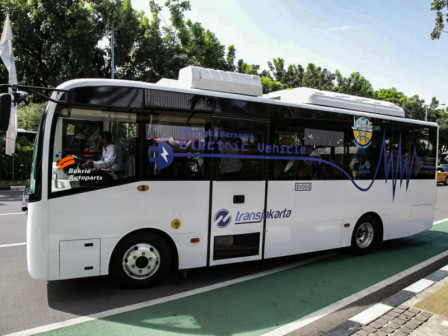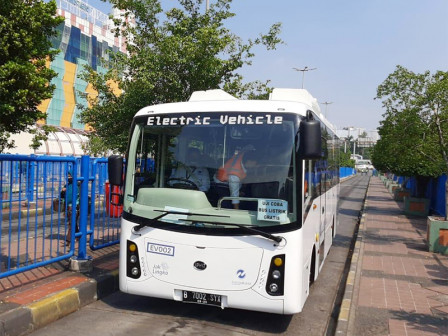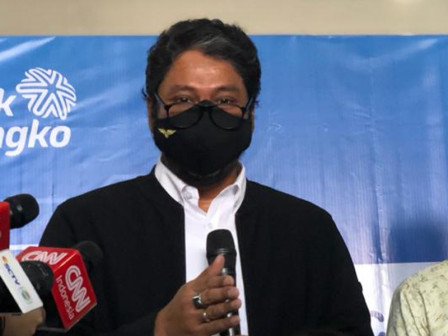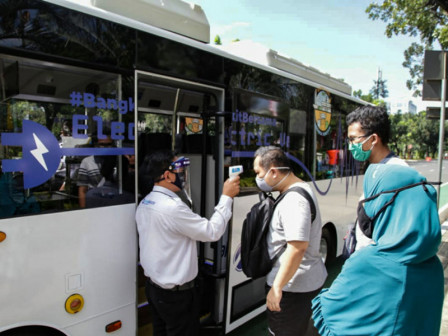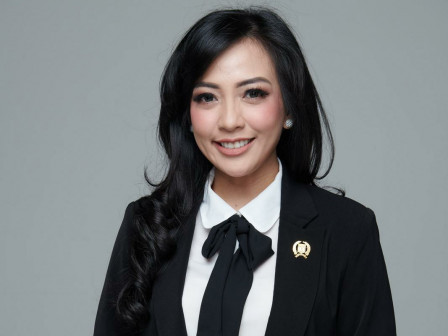This June, Transjakarta Targets To Operate Tens Electric Buses
Reported by Aldi Geri Lumban Tobing | Translated by Maria Inggita
Celebrating Jakarta anniversary, PT. Transportasi Jakarta (Transjakarta) planned to operate 20-30 electric buses in this June.
We are targeting to operate 10,051 electric buses by 2030
PT. Transjakarta President Director, Sardjono Johnny Tjitrokusumo conveyed, it was done referring to Work Plan and Budget (RKA), where his side will procure 100 electric buses this year.
"We hope at Jakarta Anniversary, we can give prizes to Jakarta residents by operating minimum 20-30 electric buses," he said, when he was invited as speaker for Balkoters Talk with theme 'Take a Look for City's Electric Bus Transportation' with sub-theme of 'Integrated Transportation, Towards Traffic Jam-Free and Blue Sky Jakarta', on Wednesday (3/17).
Jakarta Wins 2021 STA AwardsIn this webinar which initiated by Jakarta City Hall and Jakarta Council (DPRD) Press Coordinating Journalists, Johnny explained that the operation of 100 electric buses in this year is the first milestone towards Company's Long Term Plan (RJPP) which targeted to change all oil-fueled Transjakarta buses into electric buses by 2030.
"If this plan can run well, it becomes our important milestone, a small success for us towards a bigger target in 2030. In our RJPP, we are targeting to operate 10,051 electric buses by 2030," he asserted.
Regarding tariff for electric bus, PT. Transjakarta is still using solar bus' rupiah per kilometer scheme which is implemented until BPPBJ issues its Own Estimated Price (HPS) together with LKPP in e-Katalog.
Another alternative is to determine Transjakarta electric bus tariff, which refers to the current diesel price plus 30 percent or focus group discussion (FGD) result which conducted by manufacturers and several operators which results negotiation between Transjakarta and operators.
"Operator must be smart in making offers and choosing economical products to enter the price range set by Transjakarta. From three types of tariff setting, namely HPS, diesel plus 30 percent, and negotiation result, we will take the lowest one to use it as bus tariff where the benchmark is rupiah per kilometer payment," he stated.

